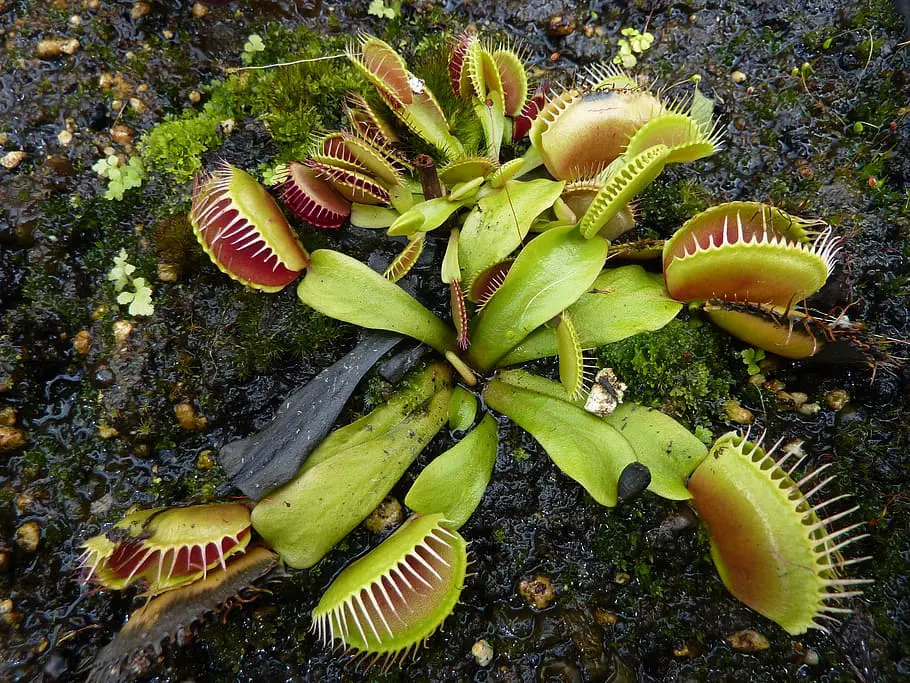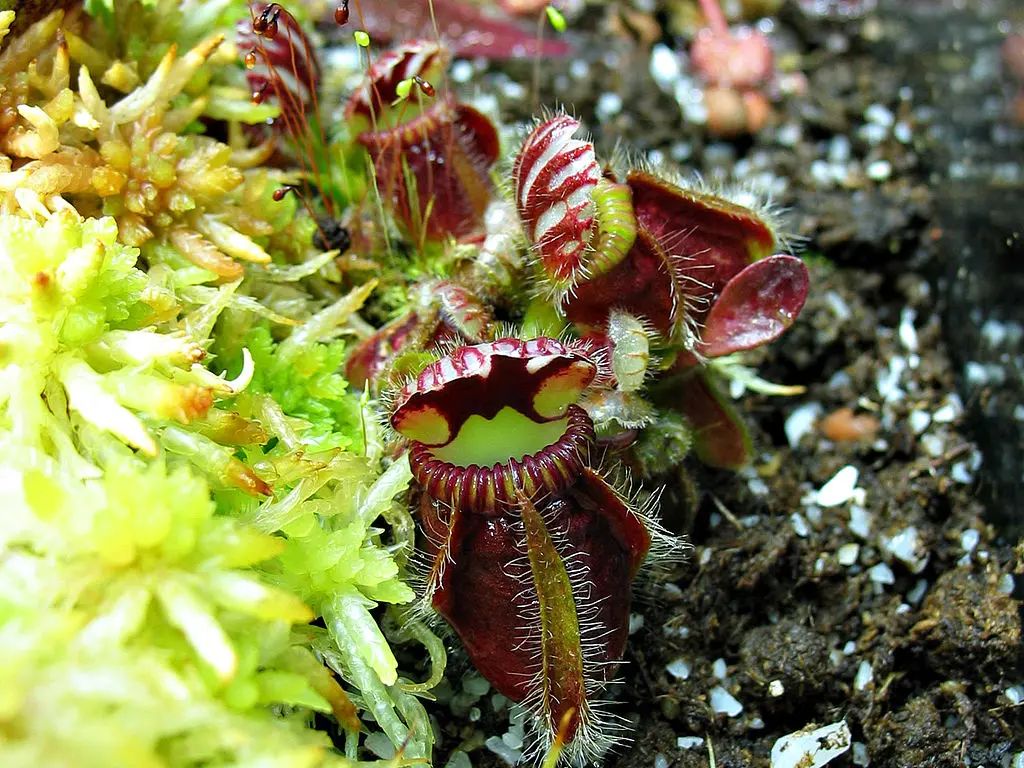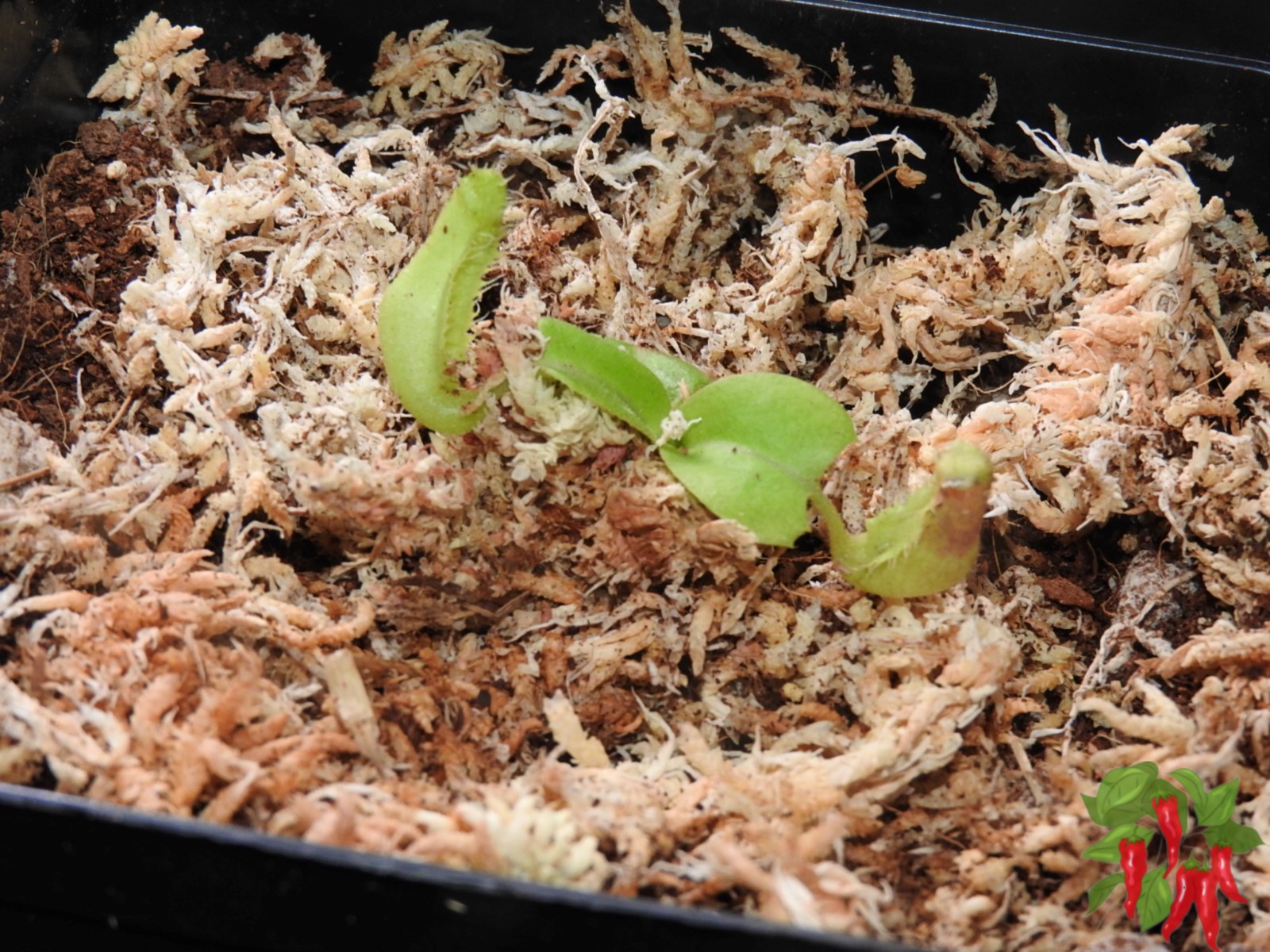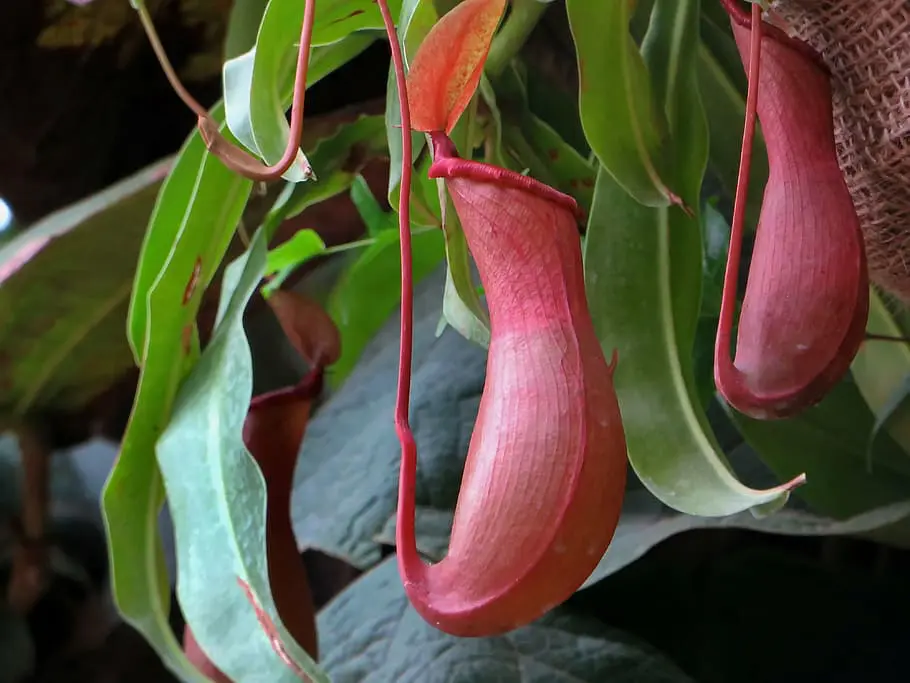This post contains affiliate links. If you buy something from one of our links we may earn a commission. Thanks
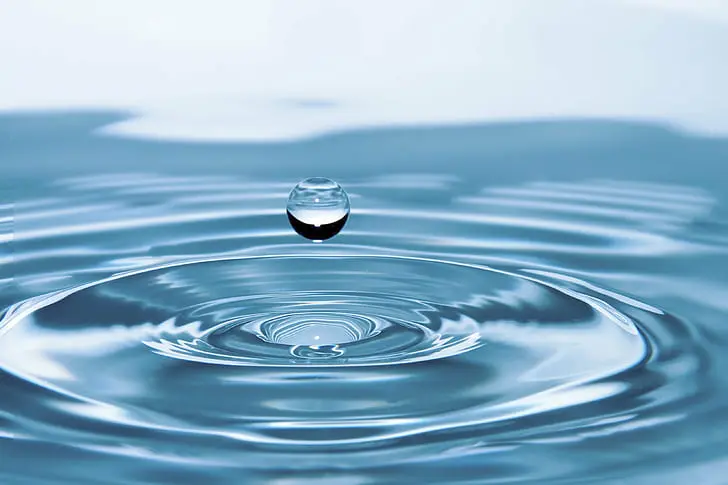
Discover the ins and outs of water quality for carnivorous plants in our comprehensive guide. Learn what types of water to use and avoid for healthier, happier plants!
Using the correct water quality for carnivorous plants is crucial for their health and vitality. Opt for water sources low in Total Dissolved Solids (TDS) and within a pH range of 5.0 to 6.5. Regular testing is recommended to ensure optimal conditions.
Water Quality for Carnivorous Plants: The Best Types
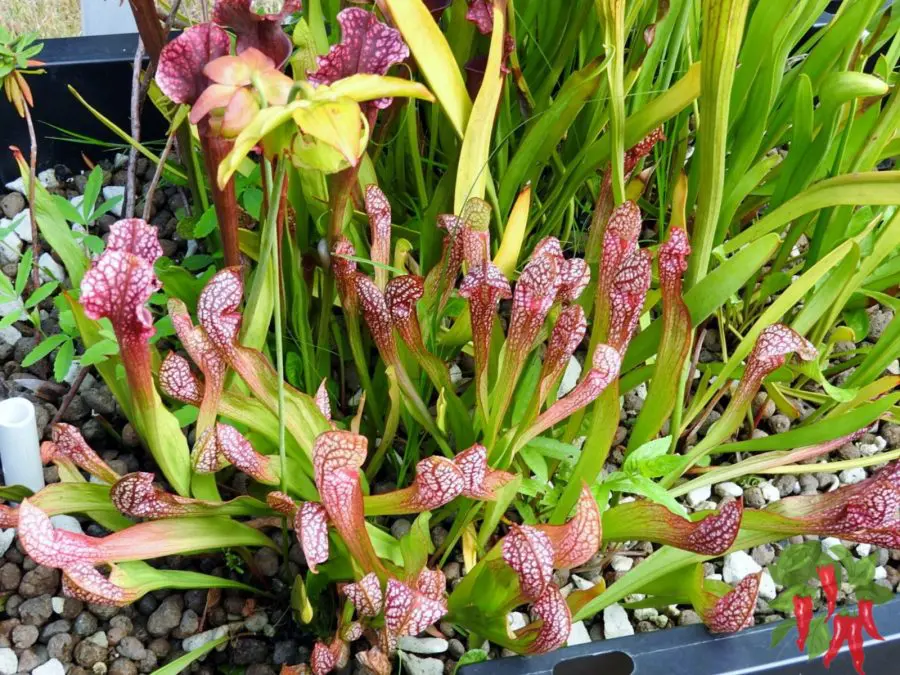
Have you ever wondered why your Venus flytrap isn’t as snappy as it could be? The secret might just be in the water quality for carnivorous plants. Dive into this article to learn all about it!
Water Quality for Carnivorous Plants
Water quality is a critical factor that often goes unnoticed when caring for carnivorous plants.
This article aims to educate plant enthusiasts about the importance of water quality, the science behind it, and how to choose the right type of water for these unique plants.
The Science Behind Water Quality
Understanding the science behind water quality can help you make informed decisions about how to best care for your carnivorous plants.
This section will delve into what purified water is, why low Total Dissolved Solids (TDS) are important, and the ideal pH levels for these plants.
What is Purified Water?
Purified water has been treated to remove most impurities, such as chemicals and other contaminants.
This makes it a safe choice for sensitive plants like carnivorous species.
Importance of Low Total Dissolved Solids (TDS)
Low TDS levels are crucial for the health of carnivorous plants.
High levels of salts and minerals can lead to root burn, leaf browning, and even the death of the plant.
pH Levels Suitable for Carnivorous Plants
The ideal pH level for most carnivorous plants ranges between 5.0 and 6.5.
Outside this range, the plants may suffer from nutrient deficiencies or toxicities.
Types of Water to Avoid
Knowing what types of water to avoid is crucial for the well-being of your carnivorous plants.
Using the wrong type of water can lead to harmful effects such as root burn, leaf browning, and even plant death.
Tap Water
Tap water often contains salts and chemicals that can harm carnivorous plants. The high levels of Total Dissolved Solids (TDS) in tap water can lead to root burn and leaf browning.
Contaminated Natural Water
Natural water sources like streams or ponds may contain harmful bacteria, algae, or pesticides. These contaminants can be detrimental to the health of indoor plants in particular.
Acceptable Water Sources
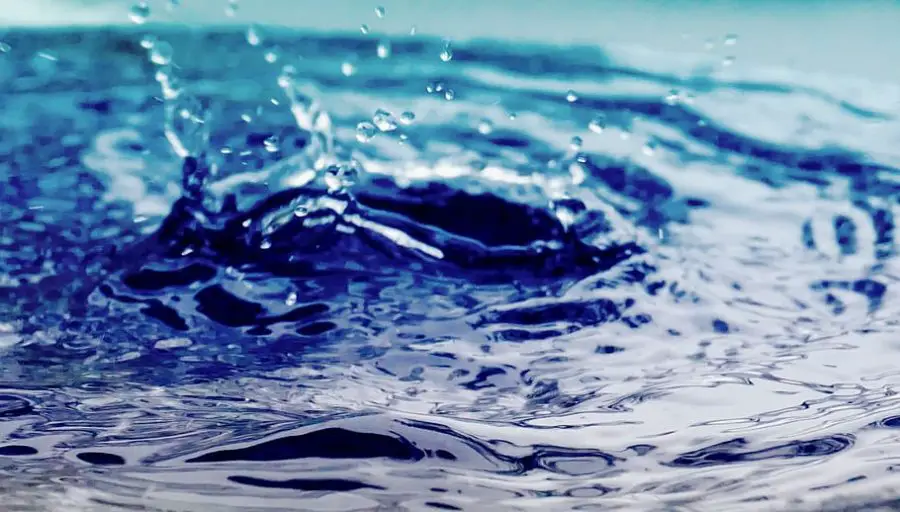
Selecting the right type of water can make a significant difference in the health and longevity of your carnivorous plants.
Rainwater
Rainwater is generally a good option as it is free of salts and chemicals. However, it may contain some organic matter or pollutants from the air.
Stream Water
Stream water can be a good alternative if it is free from pollutants and has a low TDS level. Always test before using it on your plants.
Measuring Water Quality
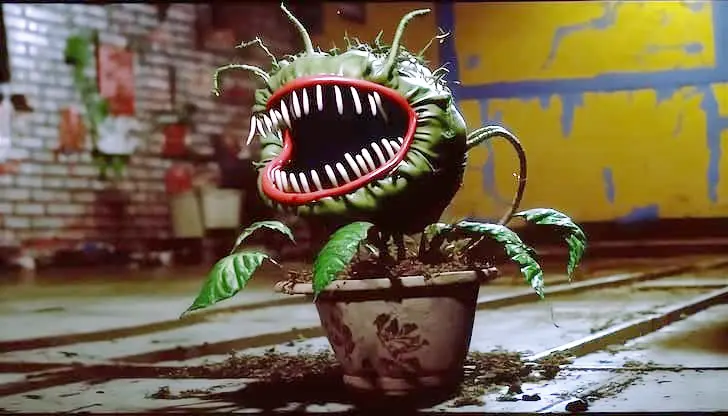
So, you’ve learned about the importance of water quality for carnivorous plants and the types of water to use and avoid.
But how do you actually go about measuring water quality? It’s not like your plants will start waving a red flag if something’s off, right?
Well, that’s where this section comes in handy.
Understanding how to measure water quality is like giving yourself a superpower in plant care.
It’s the key to unlocking a whole new level of health and vitality for your carnivorous plants.
We’re going to delve into the nitty-gritty of using tools like TDS meters and pH testing kits.
These are your go-to gadgets for ensuring that the water you’re using is not just acceptable but ideal for your green buddies.
By the end of this section, you’ll be equipped with the knowledge to perform regular water quality checks like a pro.
Whether you’re growing a Venus flytrap, a pitcher plant, or any other carnivorous species, knowing how to measure water quality will set you on the path to becoming a true plant whisperer.
Using a TDS Meter
A TDS meter, or Total Dissolved Solids meter, is an invaluable tool for any carnivorous plant enthusiast.
This handy device measures the concentration of dissolved substances in your water, giving you a numerical value usually in parts per million (ppm).
A low ppm indicates that the water is free from harmful salts and minerals, making it ideal for your plants.
By regularly using a TDS meter, you can ensure that your water source remains consistent in quality, helping you avoid any unpleasant surprises like root burn or leaf browning.
pH Testing
Maintaining the right pH level in the water you use for your plants is crucial for their well-being.
Regular pH testing allows you to monitor the acidity or alkalinity levels of your water.
Most carnivorous plants prefer slightly acidic water, usually within a pH range of 5.0 to 6.5. You can use pH testing strips or a digital pH meter for more accurate results.
By keeping an eye on the pH levels, you can make necessary adjustments, such as adding pH adjusters, to ensure your plants are getting the optimal conditions they need to thrive.
You can find combo meters that measure both TDS and pH but be aware pH meters have a shorter lifespan than TDS meters.
Common Misconceptions
There are several myths and misconceptions about water quality and carnivorous plants.
Leaving Tap Water Overnight
Leaving tap water to sit overnight will not significantly reduce its TDS levels or make it safe for carnivorous plants.
In addition, most tap water is treated with chloramines. Unlike chlorine, it is much more persistent and it will not dissipate overnight.
Using Water Softeners
Water softeners replace calcium and magnesium ions with sodium, which is still harmful to carnivorous plants.
Water Requirements FAQs
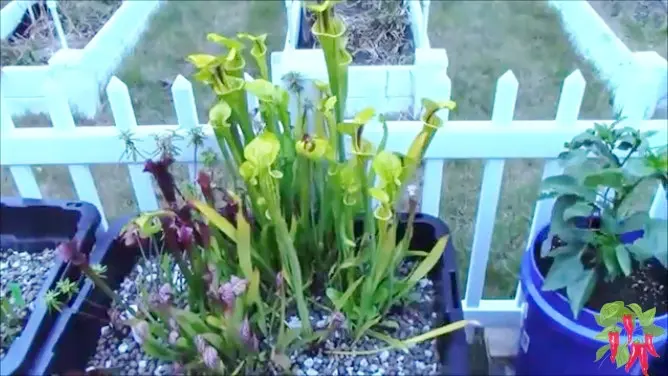
The FAQ section aims to address some of the most common questions and concerns about water quality for carnivorous plants.
Whether you’re a beginner or an experienced grower, these answers will help you make informed decisions about water quality for your plants.
Q: Can I use tap water for my carnivorous plants?
A: It’s generally not recommended to use tap water for carnivorous plants due to the high levels of salts and chemicals, which can lead to root burn and leaf browning.
Q: Is rainwater safe for indoor plants?
A: Rainwater is generally safe for indoor plants, but it’s best to test it for contaminants, especially if you live in an area with air pollution.
Q: How do I measure TDS levels?
A: You can measure TDS levels using a TDS meter, which will help you ensure that the water you’re using is within a safe range for your plants.
Q: What pH level is ideal for carnivorous plants?
A: The ideal pH level for most carnivorous plants ranges between 5.0 and 6.5.
Q: Can I use water softeners for my carnivorous plants?
A: Water softeners are not recommended as they replace calcium and magnesium ions with sodium, which is still harmful to carnivorous plants.
Q: How often should I test the water quality?
A: It’s advisable to test the water quality every month to ensure it remains within the ideal parameters for your plants.
Q: Is it safe to use bottled water?
A: Bottled water can usually be used, but it’s best to check its TDS and pH levels before using it on your plants.
Q: Can I use well water for my carnivorous plants?
A: Well water can vary in quality, so it’s essential to test it for TDS and pH levels before using it on your plants.
Q: Do different species of carnivorous plants have different water requirements?
A: While the basic water quality requirements are similar for most carnivorous plants, some species may have specific needs. Always research the particular needs of each species you’re growing.
Q: What are the signs of poor water quality affecting my plants?
A: Signs of poor water quality can include root burn, leaf browning, and wilting. If you notice these symptoms, it’s crucial to reassess your water source.
Water Quality Conclusion
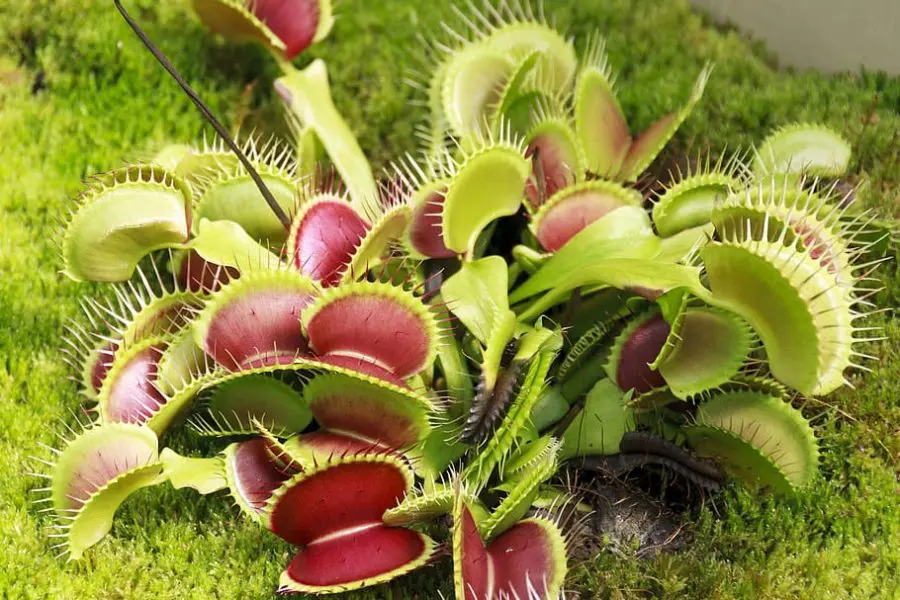
Understanding the importance of water quality can significantly improve the health and vitality of your carnivorous plants.
This article aims to provide a comprehensive guide on the types of water that are best and worst for these fascinating plants, how to measure water quality, and common misconceptions to avoid.
Summary of Key Points
This article has covered the science behind water quality, types of water to avoid, acceptable water sources, and how to measure water quality.
We’ve also debunked common misconceptions and answered frequently asked questions to provide a well-rounded understanding of water and carnivorous plant care.
Final Recommendations
For the best results, always opt for water sources that are low in TDS and within the ideal pH range.
Regular testing and vigilance can go a long way in ensuring the long-term health and vitality of your carnivorous plants.
Additional Resources
Buying a Rain Barrel for Watering Carnivorous Plants
Investing in a rain barrel can be a game-changer for watering your carnivorous plants.
Rainwater is naturally low in salts and minerals, making it one of the best water sources for these sensitive species.
A rain barrel allows you to collect and store rainwater, ensuring you have a consistent supply even during dry spells.
Plus, it’s an eco-friendly option that helps you reduce your water footprint.
Just make sure to cover the barrel to prevent debris and insects from contaminating the water.
With a rain barrel, you’re not just doing your plants a favor but also contributing to environmental conservation.
Getting an RO System for Carnivorous Plants
If you’re looking for a more high-tech solution, a Reverse Osmosis (RO) system could be the answer to your water quality woes.
RO systems are designed to remove up to 99% of all contaminants, including salts and chemicals, making the water virtually pure.
This is especially useful if you’re growing more sensitive or exotic species of carnivorous plants that require stringent water quality.
While the initial investment can be high, the long-term benefits include consistent water quality and less risk of plant health issues.
An RO system offers peace of mind, knowing that your plants are getting the best water possible.





